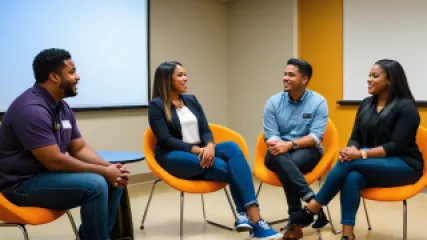How to Overcome Gambling Addiction: A Step-by-Step Guide
1 year ago
Psychology of Gambling
How to Overcome Feelings of Sadness: 5 Effective Strategies
1 year ago
Overcoming Sadness
What is the Best Way to Find Virtual Grief Counseling?
1 year ago
Bereavement Support
Overcome Optimism Bias: A Step-by-Step Guide
1 year ago
Cognitive Biases
The Ultimate Guide to Mental Health Advocacy
1 year ago
Advocacy in Mental Health
10 Steps to Finding Meaningful Online Bereavement Support
1 year ago
Bereavement Support
How Online Bereavement Support Helped Me Cope With Grief
1 year ago
Bereavement Support
What 'Ikiru' Can Teach Us About Grief and Bereavement Support
1 year ago
Bereavement Support
Exploring Existential Questions: An Interview with a Mental Health Expert
1 year ago
Existential Questions
Exploring Common Existential Questions and Confronting Existential Dread
1 year ago
Existential Questions
Spotlight: Championing Mental Health Advocacy
1 year ago
Advocacy in Mental Health
Mastering Mindful Eating Habits: The Ultimate Guide
1 year ago
Eating Habits
How to Boost Confidence in Aging: Common Questions Answered
1 year ago
Aging and Self Esteem
Step-by-Step Guide to Building Confidence: Overcoming Shyness with Online Social Anxiety Support
1 year ago
Overcoming Shyness
Mastering Peer Relationships: The Ultimate Guide
1 year ago
Peer Relationships















